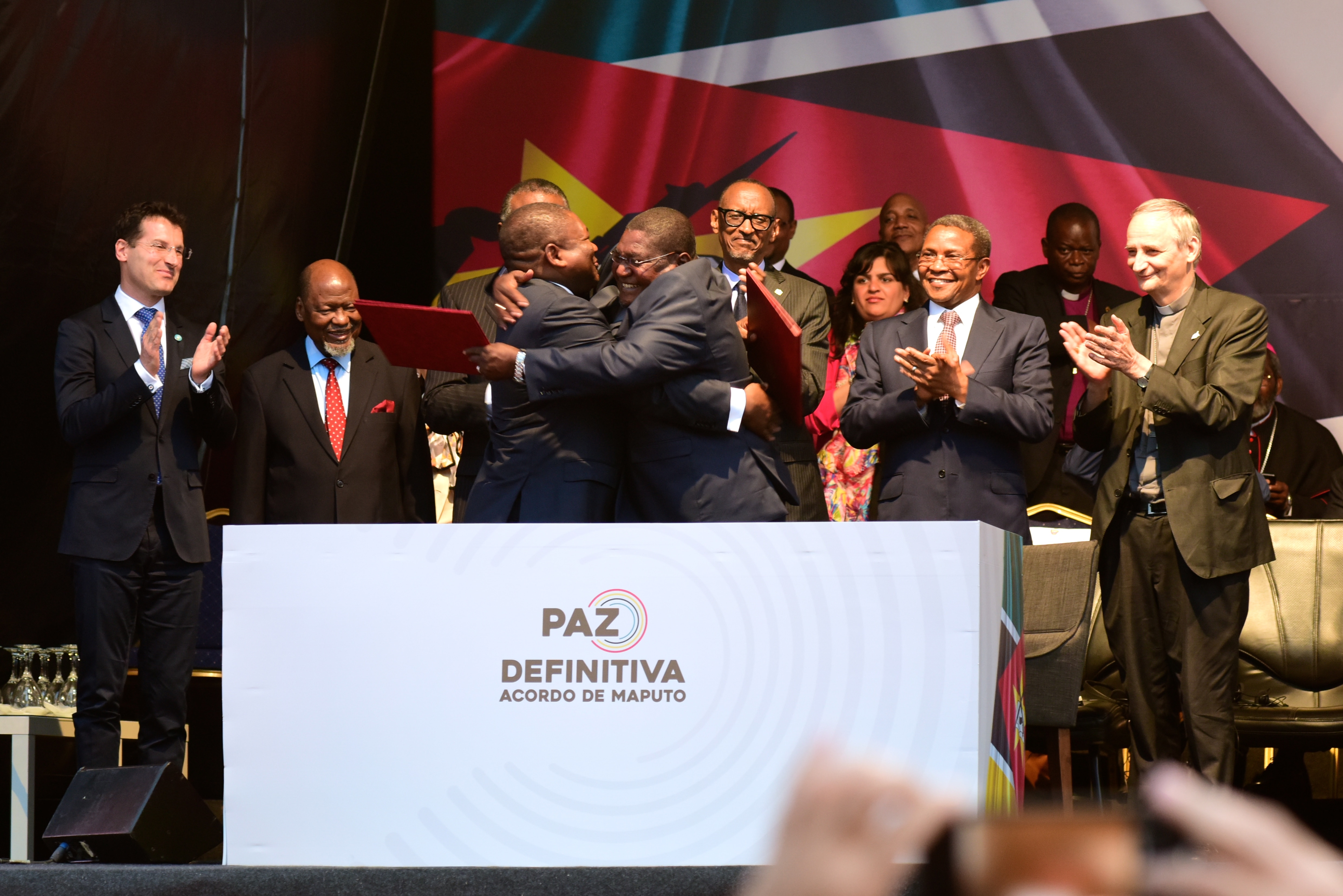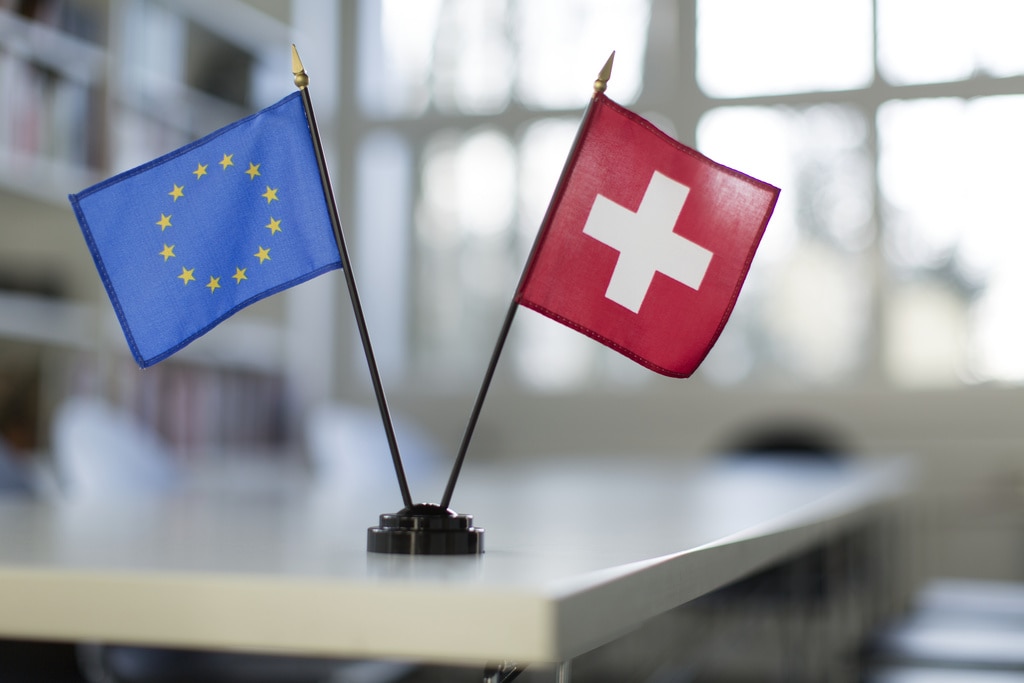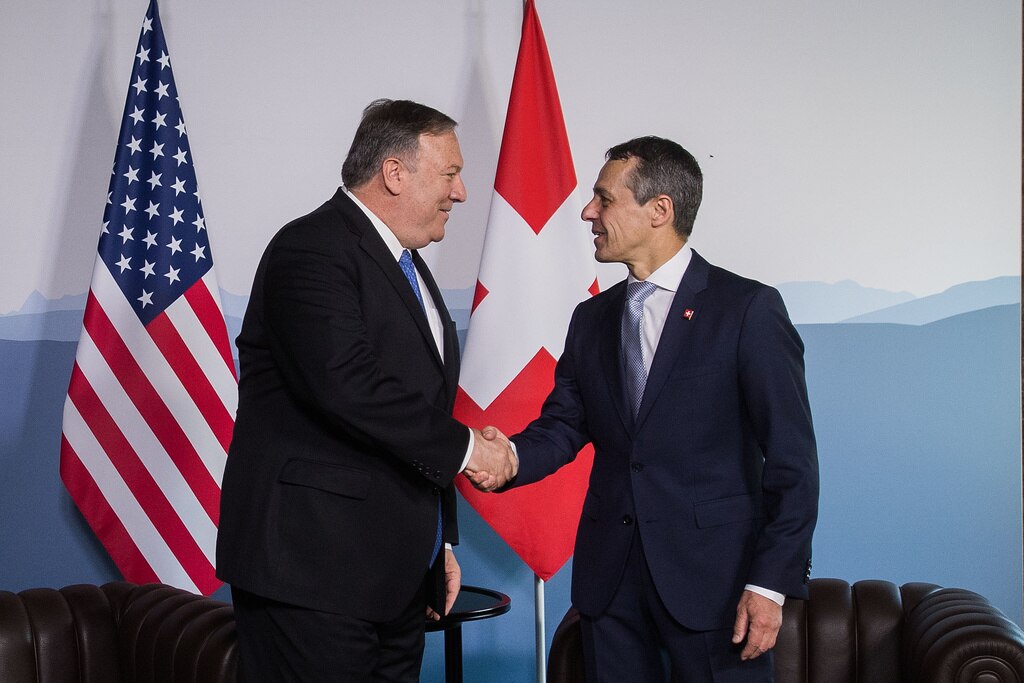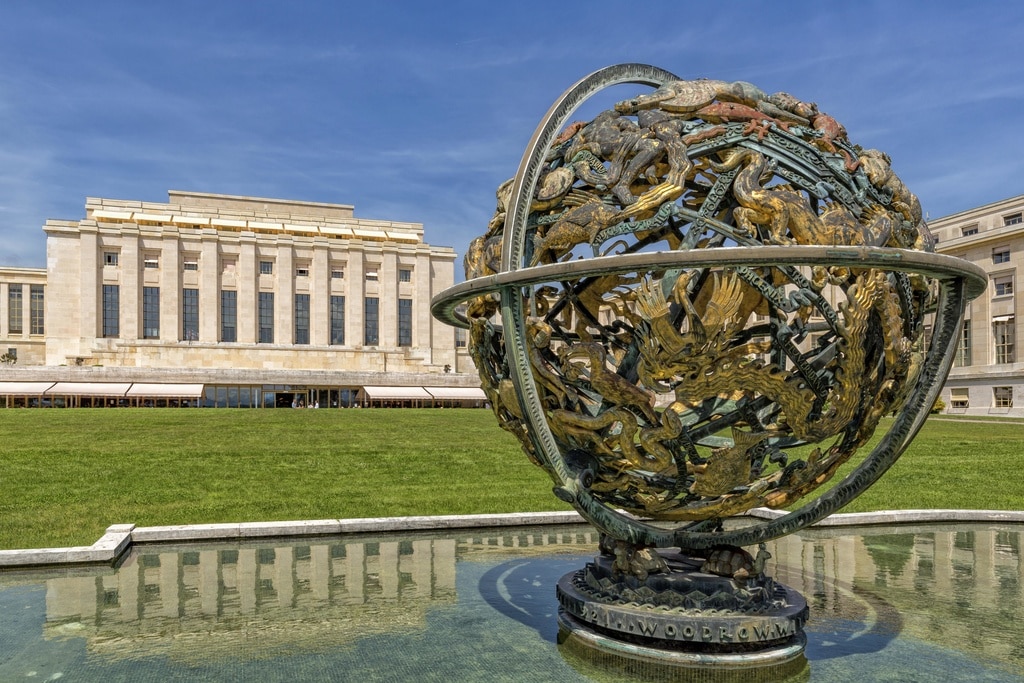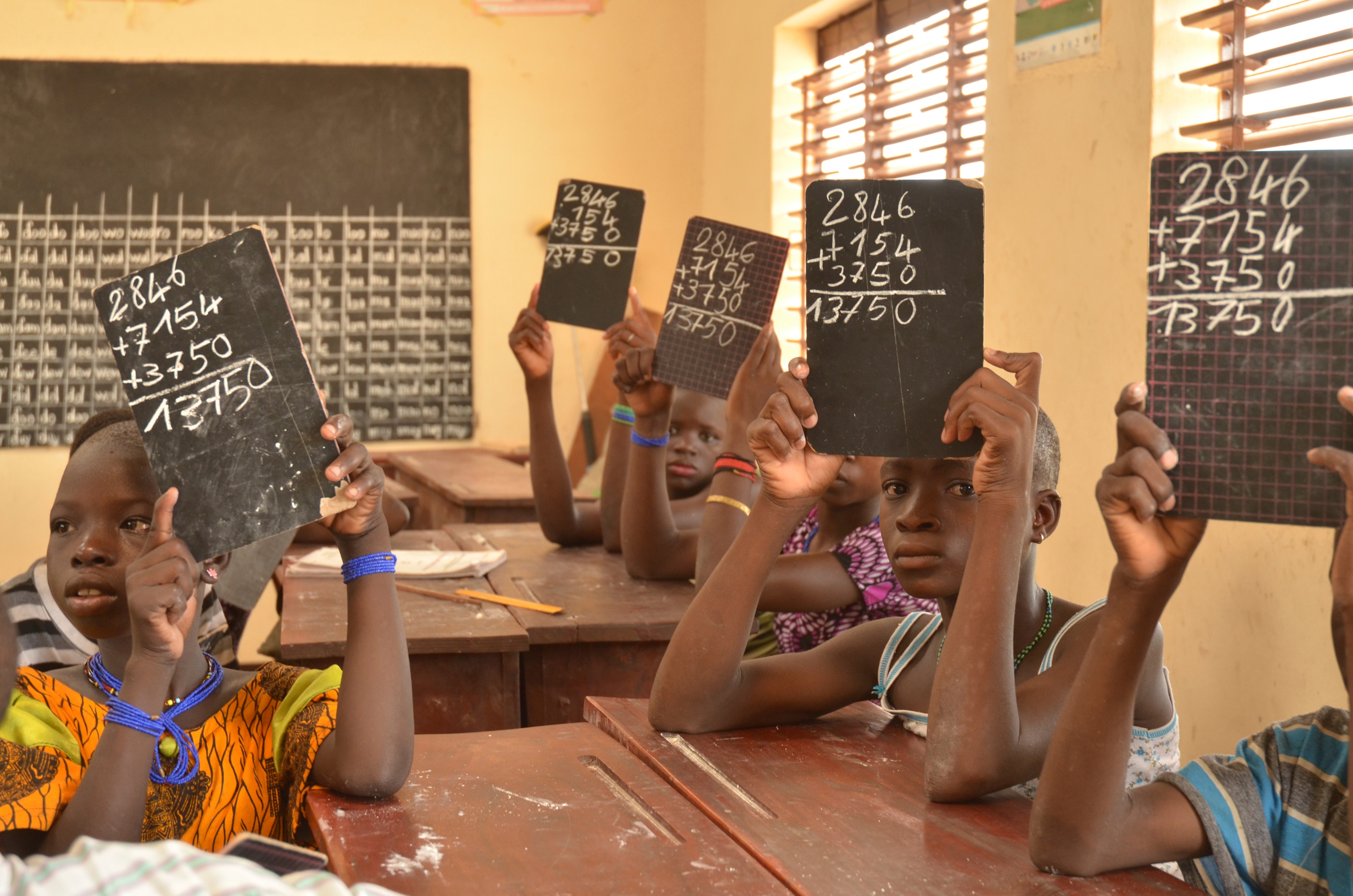Read more
It continued to do so in 2019 at many meetings with representatives of other states. In particular, relations were strengthened with Brazil, China, India, Japan, Russia, South Africa, Turkey and the United States. Good relations with these eight countries are crucial for Switzerland as they have a significant influence on regional and international developments. For example, Indian President Ram Nath Kovind paid a state visit to Switzerland in 2019, while then President of the Confederation Ueli Maurer met with US President Donald Trump for talks, and travelled to Moscow to meet with Russian President Vladimir Putin in the Kremlin. Federal Councillor Ignazio Cassis met with a number of key figures, including US Secretary of State Mike Pompeo in Bellinzona.
The topics of human rights and the rule of law are crucial to Switzerland's foreign policy. The country took a clear stand on these issues in its bilateral talks with China, Russia and Turkey.

